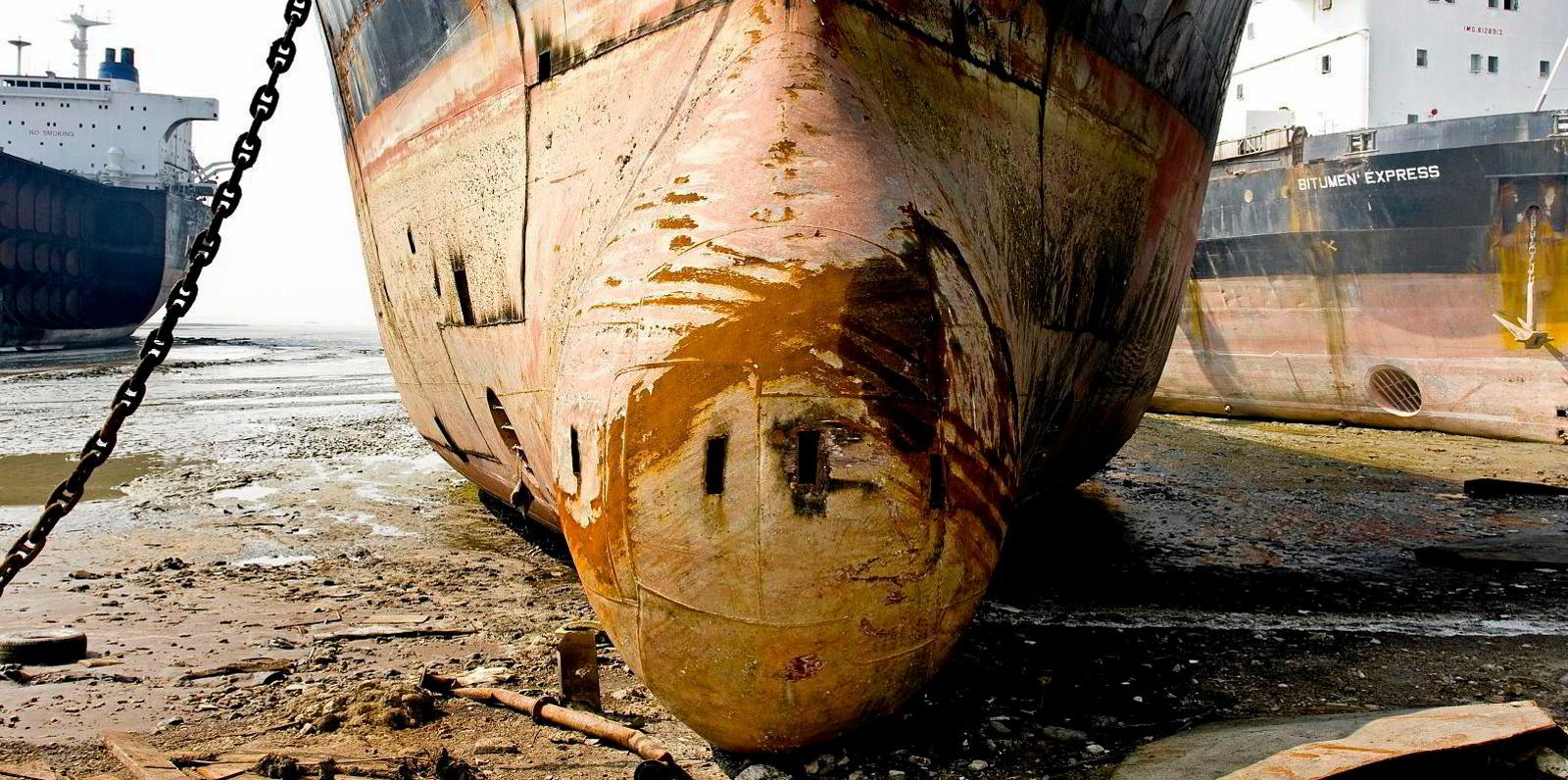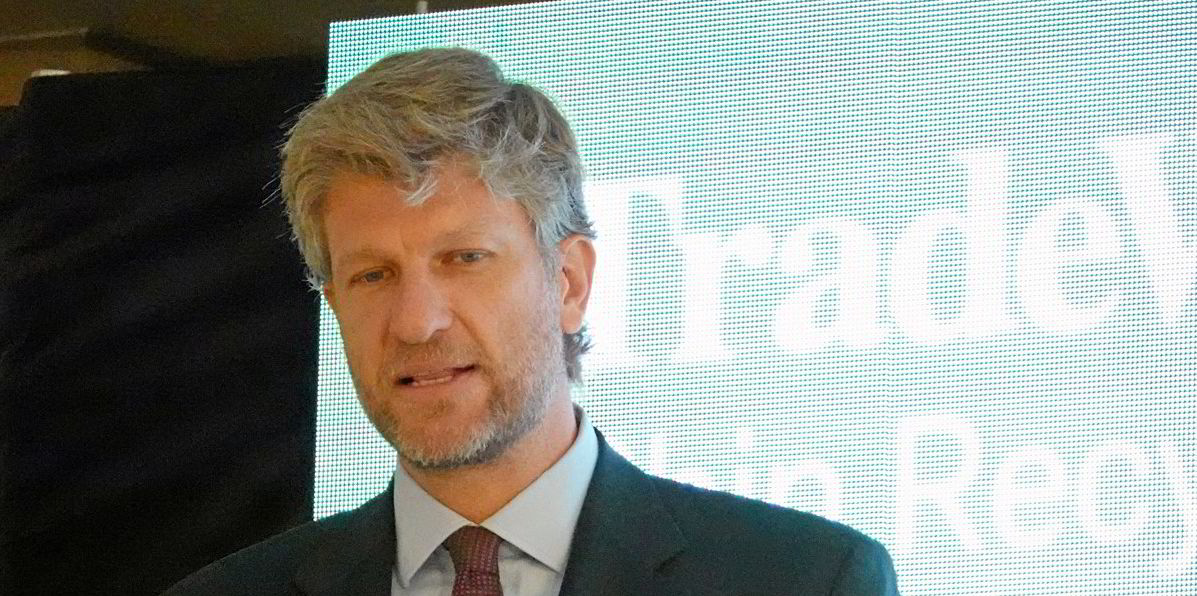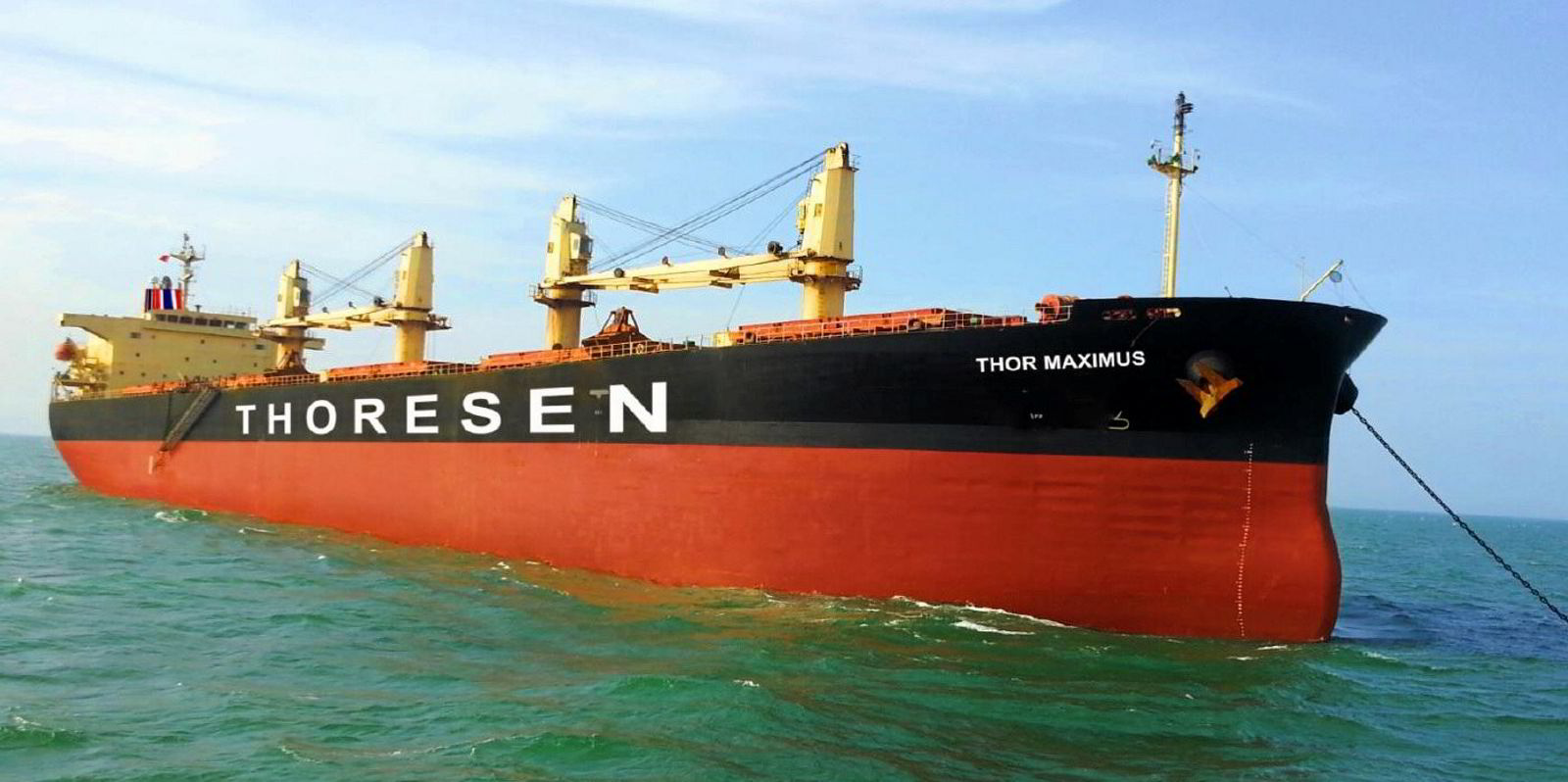The end of the life of most modern ships has been one of the worst and last-remaining of international shipping’s dirty secrets. Long after the worst of the chronic pollution from oil tankers had been stemmed, the beaches of the Indian subcontinent have been toxic killing zones, where poorly equipped and little-trained migrant workers slaved away in dangerous conditions amid noxious pollutants from demolished hulls.
Thankfully, after 20 years of press exposure, campaigning and political enlightenment, real change is now evident, with improved working conditions and measures to contain hazardous waste.
India’s yards in Alang are leading the improvements, while those in Bangladesh on the Bay of Bengal are catching up fast.
A landmark for the activity was passed this summer when the governments of Liberia and Bangladesh signed the International Maritime Organization’s Hong Kong International Convention for the Safe and Environmentally Sound Recycling of Ships.
Those two nations brought the tortured gestation of the convention to a close. They joined 20 other countries, crossing the threshold to get it into force in two years.
Having been agreed at an international conference in Hong Kong in 2009, the world has had to wait for 14 years before an adequate number of nations ratified the document to ensure it enters into force.
During that time, fears grew that the convention was doomed to die. A complex ratification matrix dictated that it would only become law with an adequate rolling 10-year quota of scrapping capacity accounted for by signatories.
Entering force
Due to that, if the convention did not receive adequate backing in 2023, it appeared likely never to become international law.
The drawn-out process — which in any case has been consistently criticised by environmental campaigners as lacking in ambition and teeth — would have been a multi-decade failure.
However, the commitment of Liberia and Bangladesh now means the long wait will end in June 2025 when the convention formally enters into force.
From that date, all ships flagged in signatory countries — which include the major flags of Panama, Liberia, Japan and most northern European ones — will have to be scrapped at yards that comply with the convention.
In simple terms, those yards must have an impermeable concrete floor, only cut hulls where waste can be caught and retained, give workers training and safety equipment, and have emergency medical facilities available nearby.
The convention will cover all recycling yards in the major centres of India, Bangladesh and Turkey.
Yet that leaves one major scrapping state outside the rules: Pakistan and its facilities on the beaches of Gadani on the Arabian Sea coast.

With the last of the “Big Three” recycling nations not signed up, owners with ships registered with flags outside of the convention would be free to use yards that had not even met the basic standards demanded by the convention.
It would undermine the supporters’ aspirations of the convention that it would lift the industry’s standards globally.
But there remains the chance that this loophole will be closed. Last week’s TradeWinds’ Ship Recycling Forum in Singapore heard from senior Pakistan government officials and leaders of the nation’s recycling business community that they understood the historic role they must play.
They pledged that the country was focused on ratification, perhaps in as little as months, while regretting the time they had lost in recent years. They said their minds had been collectively focused after 16 workers were killed in a catastrophic explosion on a ship that was being scrapped in 2016.
They will also be looking at India and Bangladesh with respect. Both countries have taken the ambitious step to upgrade their approach to the industry, in line with their ambitions for their broader economies. They have been assisted with that by the governments and agencies of Norway and Japan.
Building a better future
The IndustriALL international labour union, which represents yard workers, has praised the Bangladesh government and its leading yards for their commitment to investing in infrastructure and training to improve working conditions and limit pollution.
At a recent round table meeting, Mohammed Mominur Rashid of the Bangladesh Ministry of Industries said scrapping had created a bad reputation for the country, which it felt a historic responsibility to change to build a better future for the country, the union said.
Yards in India and Bangladesh, which have invested in improved and compliant facilities in the past few years, are complaining about the struggle to win new business in current slack markets. But theirs is an investment for the future, to be in the game when others are not allowed to be at the table.
Pakistan’s government and yards should now follow the same strategy. They have the opportunity to help the world finally consign shipping’s worst dirty secret to history.





